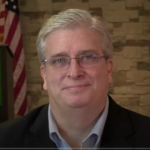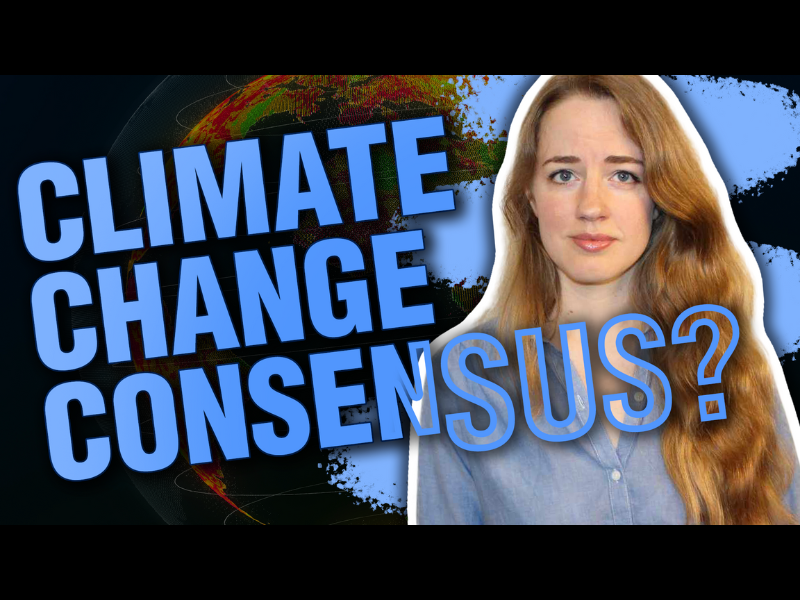The Nongovernmental International Panel on Climate Change (NIPCC) on Tuesday, Sept. 17 will release a major new report on climate change science produced by an international team of 40 scientists at a press conference at the James R. Thompson Center in downtown Chicago.
The new report, titled Climate Change Reconsidered II: Physical Science, challenges what its authors say are the overly alarmist reports of the United Nations’ Intergovernmental Panel on Climate Change (IPCC), whose next report is due out later this month.
(NOTE: If you cannot attend the Chicago press conference in person, a conference call with the NIPCC scientists will take place the same day, Tuesday, Sept. 17 at Noon Central Time. Register here to participate in the conference call.)
Copies of a Summary for Policymakers, an executive summary, and the entire book (unbound) will be available to reporters at the news conference. All three documents will be available for free online following the news conference.
Quotes for pre-release attribution:
Joseph Bast, president of The Heartland Institute:
“This is probably the most important report on climate change ever produced. Its breadth and depth rival that of the IPCC’s reports. Its authors have no agenda except to find the truth. It anticipates and soundly refutes the IPCC’s hypothesis that global warming is man-made and will be harmful. And it comes at a time when global warming alarmism is retreating among academics, the general public, and the political class.”
Dr. S. Fred Singer, Ph.D., atmospheric and space physicist, professor emeritus of environmental science at the University of Virginia, founder of the Science and Environmental Policy Project (SEPP):
“Scientists have not been able to devise an empirically validated theory proving that higher atmospheric CO2 levels will lead to higher global average surface temperatures (GAST).
“Moreover, if the causal link between higher atmospheric CO2 concentrations and higher GAST is broken by invalidating each of the EPA’s three lines of evidence, then the EPA’s assertions that increasing CO2 concentrations also cause sea-level increases and more frequent and severe storms, floods, and droughts are also disproved.
“Such causality assertions require a validated theory that higher atmospheric CO2 concentrations cause increases in GAST. Lacking such a validated theory, the EPA’s conclusions cannot stand. In science, credible empirical data always trump theory.”
Dr. Craig Idso, Ph.D., founder and chairman of the Center for the Study of Carbon Dioxide and Global Change:
“Climate Change Reconsidered II (CCR-II) provides the scientific balance that is missing from the work of the IPCC. Although the IPCC claims to be unbiased and to have based its assessments on the best available science, this report demonstrates that such is certainly not the case.
“In many instances the IPCC has seriously exaggerated its conclusions, distorted relevant facts, and ignored the findings of key scientific studies that run counter to its viewpoint. CCR-II examines literally thousands of peer-reviewed scientific journal articles whose findings do not support, and indeed often contradict, the IPCC’s perspective on climate change.”
Dr. Robert M. Carter, Ph.D., paleontologist, stratigrapher, marine geologist, and environmental scientist; former professor and head of the School of Earth Sciences at James Cook University (Townsville, Australia):
“NIPCC’s Climate Change Reconsidered II report is full of factual evidence that today’s climate continues to jog along well within the bounds of previous natural variation. The empirical pigeons have therefore finally come home to roost on the IPCC’s speculative computer models — and they carry the message that ice is not melting at an enhanced rate, sea-level rise is not accelerating, the intensity and magnitude of extreme events is not increasing, and dangerous global warming is not occurring.”
The series is published by the Chicago-based Heartland Institute, a national nonprofit research and education organization. Economist magazine in 2012 called The Heartland Institute “the world’s most prominent think tank promoting skepticism on man-caused climate change.”The New York Times calls Heartland “the primary American organization pushing climate change skepticism.”
Like earlier volumes in the Climate Change Reconsidered series, this new report cites thousands of peer-reviewed articles to determine the current state-of-the-art of climate science. NIPCC authors paid special attention to contributions that were overlooked by the IPCC or presented data, discussion, or implications arguing against the IPCC’s claim that dangerous global warming is resulting, or will result, from human-related greenhouse gas emissions.
Most notably, the authors say the IPCC has exaggerated the amount of warming that is likely to occur if the concentration of atmospheric carbon dioxide were to double and whatever warming may occur would likely be modest and cause no net harm to the global environment or to human well-being.
NIPCC is a project of three nonprofit organizations: Science and Environmental Policy Project, Center for the Study of Carbon Dioxide and Global Change, and The Heartland Institute. The lead authors of the new report are Craig Idso, Ph.D. and S. Fred Singer, Ph.D., identified above, and Robert Carter, Ph.D., former head of the School of Earth Sciences, James Cook University (Australia). Scientists from around the world participated as lead authors, section authors, contributors, and reviewers.
The first two volumes of the Climate Change Reconsidered series, published in 2009 and 2011, are widely recognized as the most comprehensive and authoritative critiques of the reports of the United Nations’ IPCC. The complete texts and reviews of both volumes are available here and here. In June, a division of the Chinese Academy of Sciences published a Chinese translation and condensed edition of the two volumes.





